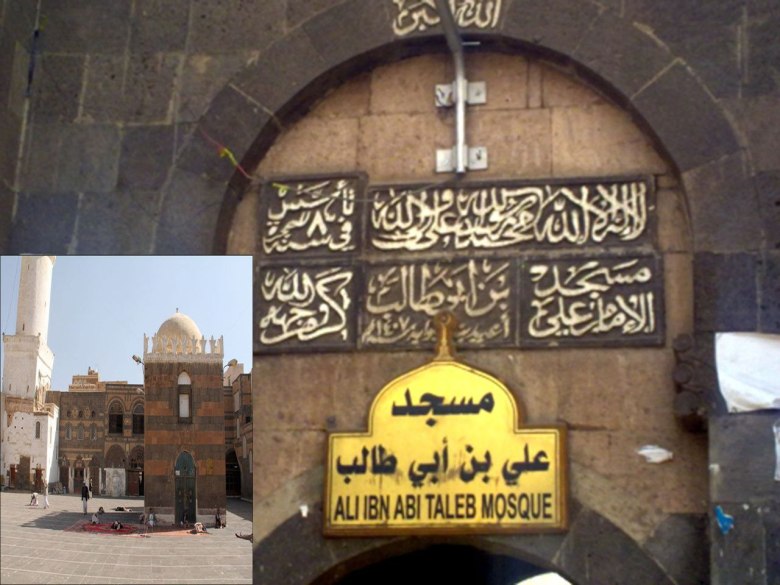
The first Friday of Rajab is of great importance to Yemenis. It is one of the honorable dates in their history because it is a memory of grace and divine success as Allah, the Almighty, urges us to remember and thank blessings, foremost among which is the blessing of guidance, which is the greatest blessing ever.
The Yemenis consider the first Friday of Rajab an auspicious holiday no less important than Eid al-Fitr, Eid al-Adha, Eid al-Ghadir, the Islamic New Year, the Prophet’s (S) birthday, and the anniversary of Isra and Mi’raj. It marks their ancestors’ conversion to Islam, and therefore they consider it an occasion to consolidate the faithful identity of present and future generations, and their deep-rooted Qur’anic Islamic identity.
It is the anniversary of their acceptance of Islam since its first dawn, whether the Muhajireen or the Ansar, in a distinct manner. This widespread acceptance of Islam was voluntary, desirous, and convinced, and it was sincere, great, and distinct.
In the ninth year of the Hijra, the great companion Muadh ibn Jabal arrived in the Al-Jand area in Taiz Governorate, to build the first mosque in the place where his camel would stop, and to call people to Islam. So the Yemenis entered the religion of Allah in droves. They responded to him willingly, without argument, dispute, or fear, but rather out of love and adoration for Allah and Islam. That is why they were and still are walking with the truth side by side throughout the ages.

On this great holiday, men, women and children go out to that mosque, the Al-Jund Mosque, chanting praises to the Prophet (S) and listening to sermons about the history of Islam in Yemen and about the praiseworthy morals and values they inherited, such as courage, boldness, assistance, pride, chivalry, dignity, helping the distressed, relieving the distressed, supporting the oppressed, and rejecting injustice.
The Yemenis wear new clothes. Flowers are scattered, and houses and mosques are perfumed and cleaned. They also exchange visits and gifts. They dye their hair with henna. They slaughter cattle and distribute its beef to the poor and needy.
The Takfiri groups indeed have been fighting everything that reminds people of their genuine religion and their Prophet, with claims that those who celebrate are infidels, without having any convincing rational, logical, or textual evidence, but rather just in the service of their benefactors from the Wahhabi kings, who are supporters of the Jews and the enemies of Islam.
They are furious against those who celebrate only because they thank the Almighty for the blessing of Islam that He has bestowed upon them and prostrate to Him alone. And because they mention the virtue of the Ansar and Muhajireen and their dedication to serving and spreading Islam. And because they hold events that remind them of their faithful identity.
This goes against the Qur’an, which urges us to rejoice Allah’s blessings and mercies: “And We have not sent you, [O Muhammad], except as a mercy to the worlds.” He also recommends: “Say : ‘In the bounty of God and in His mercy – in that let them rejoice. That is better than what they accumulate.’”
The Yemenis celebrate moving from the clutches of ignorance to guidance, from torment to mercy, from evil to good. The Prophet (S) prostrated himself when he received the news of the people of Yemen converting to Islam without opposition or fighting: “When the victory of God and conquest come, and you see the people entering the religion of God in multitudes, then exalt [Allah] with praise of your Lord and ask His forgiveness. Indeed, He is ever Accepting of repentance.”
The Qur’anic verse: “And whoever honors the symbols of Allah – indeed, it is from the piety of hearts” confirms that honoring the symbols of Allah is a sign of piety because it strengthens monotheism and attachment to the true religion: “O you who have believed, whoever of you should revert from his religion – Allah will bring forth in place of them a people He will love and who will love Him.”
The Yeminis celebrate to reiterate that Allah has favored them with Islam, which has taught them: praise of Allah, commendation, visiting the poor and the needy, and solidifying their connection with the Prophet and Ahlul Bayt: “O you who have believed, bow and prostrate and worship your Lord and do good that you may succeed.”
Since the dawn of Islam, the Prophet stated that those who would preserve Islam are the people of Yemen: “The people of Yemen have the softest hearts and the most tender souls; faith is Yemeni, and wisdom is Yemeni.”

The Prophet sent several envoys to Yemen, including, as we mentioned earlier, the companion Muadh ibn Jabal. For his part, Imam Ali (as) led them in prayer in the place currently known as the Imam Ali Mosque in Old Sana’a. After they converted to Islam, Imam Ali wrote a letter to the Prophet.
When he read it, he prostrated and said three times: “Peace be upon Hamdan.” He followed up his praise of Yemen stating: “How quick [Yemen] is to support [Islam], and how patient its efforts are.” This statement a is clear evidence of what is happening in our present time as there are no people on earth who have endured this patience, despite the air, sea, and land blockade since 2015, yet they are supporting the blockaded Gaza.
It is enough pride for the Yemenis that the first to initiate Islam and the first martyr of Islam was Yasser, Abu Ammar. It is enough honor for Yemen that the Great Prophet acknowledged the breadth of their perceptions, the soundness of their minds, and their knowledge of the clear truth, and their ability to distinguish it from falsehood, so they were the fastest nations to submit to the Islamic religion and believe in it, without the need for war or controversial discussions, but rather they knew the truth, so they submitted to it and surrendered to it obediently.

Once the Prophet was asked: “O Messenger of God, who are the people of Yemen?” He answered: “A people with tender hearts and gentle natures, faith is from Yemen and wisdom is from Yemen.”
He also says: “The people of Yemen will rise upon you as if they were clouds, they are the best soldiers on earth.” In another hadith: “The best men are the men of Yemen; faith is from Yemen and I am from Yemen.”
Since the dawn of Islam, the Holy Qur’an’s bright light has shone on their luminous hearts, and found a fertile pasture in their broad chests, so they acquired an exceptional faith, and that is why have been ferocious defenders of Islam since the martyrdom of the Prophet.







